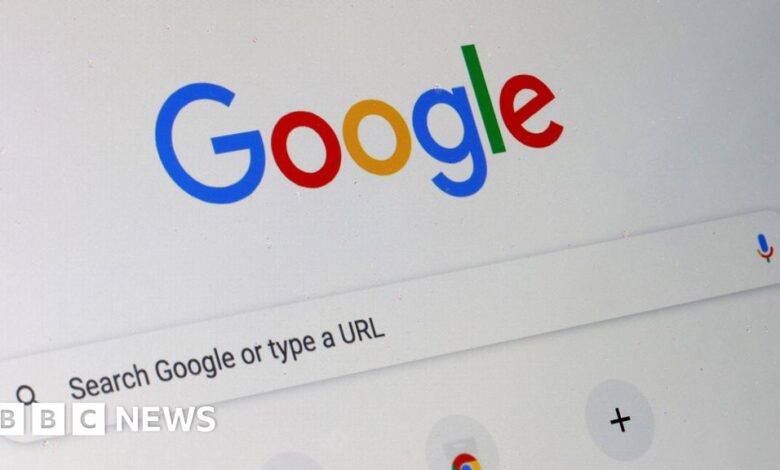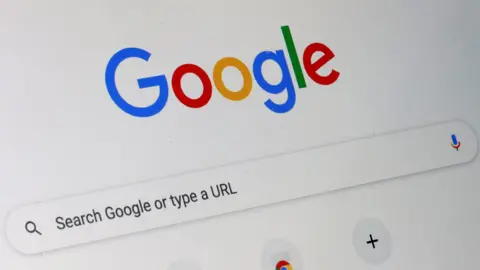Google threatened with break-up by US

2024-10-09 16:44:49
 Getty Images
Getty ImagesThe US government is considering seeking the break-up of the world’s biggest search engine, Google, which it accuses of causing “pernicious harms” to Americans.
The Department of Justice (DOJ) has been considering so-called remedies since a landmark court ruling in August which found Google illegally crushed its competition in online search.
If the DOJ pushes ahead with the proposed remedies – and they are accepted by the judge in the case – it would represent arguably the biggest regulatory intervention in the history of big tech.
Google has pushed back hard against the proposals, describing them as “radical” and “sweeping” and claiming they “risk hurting consumers, businesses, and developers.”
Google has become the go-to search engine for nearly every internet user in the world, accounting for about 90% of all online searches.
The DOJ has accused the company of using its other products, such as the Chrome browser and Android operating system, to funnel users to its search engine, where it makes money by selling adverts.
“Google’s unlawful conduct persisted for over a decade and involved a number of self-reinforcing tactics,” the DOJ said in a court filing.
It said this meant potential competitors were unable to get a foothold in the online search market.
It added this lack of competition had allowed Google to charge abnormally high prices for adverts “while degrading the quality of those ads and the related services”.
The DOJ said it was considering “remedies that would prevent Google from using products such as Chrome, Play [its app store], and Android to advantage Google search and Google search-related products”.
The DOJ is expected to submit a more detailed set of proposals by 20 November.
Google will be able to submit its own proposed remedies by 20 December.
What does Google say?
In a blog post, Google’s vice president of regulatory affairs, Lee-Anne Mulholland, said the recommendations constitute “government overreach” and could result in higher prices for consumers.
Ms Mulholland admitted Google makes its Chrome browser and Android operating system free because they are gateways to “help people access the web and use our products.”
She warned that if they were to be separated from Google, they would have to start making money in their own right – which would lead to increased prices.
Ms Mulholland also argued that by paying companies such as Apple and Samsung billions of dollars a year to be the default search engine on their devices, they effectively subsidise those products.
Therefore, if they stopped paying, the prices of those products would go up, she said.
Google also contended that the online advertising market is competitive, citing a Wall Street Journal article which says that more people are turning to TikTok and Amazon to search instead.
However, the same article said Google still had more than 50% of the ad search market.
Will this work?
If the aim is to reduce Google’s grip on the search market, it will require more than just regulatory change, says Xiaofeng Wang, principal analyst at tech consultants Forrester.
“It could open up more space for competitors, including smaller players, to grow their market share, leading to a more diverse and competitive market,” she says.
“However, technology innovations and consumer adoption strategies, including marketing, would be important to determine their eventual success.”
The outcome of this case may also set a precedent for regulation of other big American tech giants, Ms Wang adds.
“The US has also sued Meta Platforms, Amazon.com, and Apple, claiming they illegally maintain monopolies. Therefore, if the Google case goes through, it would affect more tech giants,” she says.





